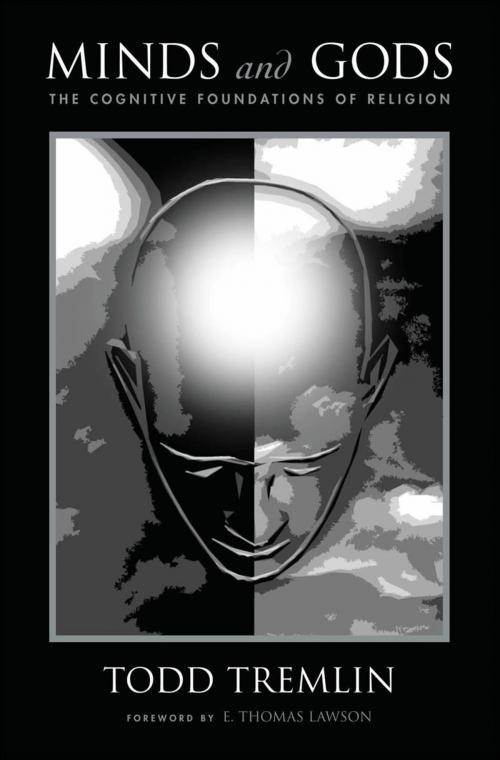Minds and Gods
The Cognitive Foundations of Religion
Nonfiction, Religion & Spirituality, Reference, Psychology of Religion, Health & Well Being, Psychology| Author: | Todd Tremlin | ISBN: | 9780199885466 |
| Publisher: | Oxford University Press | Publication: | March 2, 2006 |
| Imprint: | Oxford University Press | Language: | English |
| Author: | Todd Tremlin |
| ISBN: | 9780199885466 |
| Publisher: | Oxford University Press |
| Publication: | March 2, 2006 |
| Imprint: | Oxford University Press |
| Language: | English |
Around the world and throughout history, in cultures as diverse as ancient Mesopotamia and modern America, human beings have been compelled by belief in gods and developed complex religions around them. But why? What makes belief in supernatural beings so widespread? And why are the gods of so many different people so similar in nature? This provocative book explains the origins and persistence of religious ideas by looking through the lens of science at the common structures and functions of human thought. The first general introduction to the "cognitive science of religion," Minds and Gods presents the major themes, theories, and thinkers involved in this revolutionary new approach to human religiosity. Arguing that we cannot understand what we think until we first understand how we think, the book sets out to study the evolutionary forces that modeled the modern human mind and continue to shape our ideas and actions today. Todd Tremlin details many of the adapted features of the brain -- illustrating their operation with examples of everyday human behavior -- and shows how mental endowments inherited from our ancestral past lead many people to naturally entertain religious ideas. In short, belief in gods and the social formation of religion have their genesis in biology, in powerful cognitive processes that all humans share. In the course of illuminating the nature of religion, this book also sheds light on human nature: why we think we do the things we do and how the reasons for these things are so often hidden from view. This discussion ranges broadly across recent scientific findings in areas such as paleoanthropology, primate studies, evolutionary psychology, early brain development, and cultural transmission. While these subjects are complex, the story is told here in a conversational style that is engaging, jargon free, and accessible to all readers. With Minds and Gods , Tremlin offers a roadmap to a fascinating and growing field of study, one that is sure to generate interest and debate and provide readers with a better understanding of themselves and their beliefs.
Around the world and throughout history, in cultures as diverse as ancient Mesopotamia and modern America, human beings have been compelled by belief in gods and developed complex religions around them. But why? What makes belief in supernatural beings so widespread? And why are the gods of so many different people so similar in nature? This provocative book explains the origins and persistence of religious ideas by looking through the lens of science at the common structures and functions of human thought. The first general introduction to the "cognitive science of religion," Minds and Gods presents the major themes, theories, and thinkers involved in this revolutionary new approach to human religiosity. Arguing that we cannot understand what we think until we first understand how we think, the book sets out to study the evolutionary forces that modeled the modern human mind and continue to shape our ideas and actions today. Todd Tremlin details many of the adapted features of the brain -- illustrating their operation with examples of everyday human behavior -- and shows how mental endowments inherited from our ancestral past lead many people to naturally entertain religious ideas. In short, belief in gods and the social formation of religion have their genesis in biology, in powerful cognitive processes that all humans share. In the course of illuminating the nature of religion, this book also sheds light on human nature: why we think we do the things we do and how the reasons for these things are so often hidden from view. This discussion ranges broadly across recent scientific findings in areas such as paleoanthropology, primate studies, evolutionary psychology, early brain development, and cultural transmission. While these subjects are complex, the story is told here in a conversational style that is engaging, jargon free, and accessible to all readers. With Minds and Gods , Tremlin offers a roadmap to a fascinating and growing field of study, one that is sure to generate interest and debate and provide readers with a better understanding of themselves and their beliefs.















